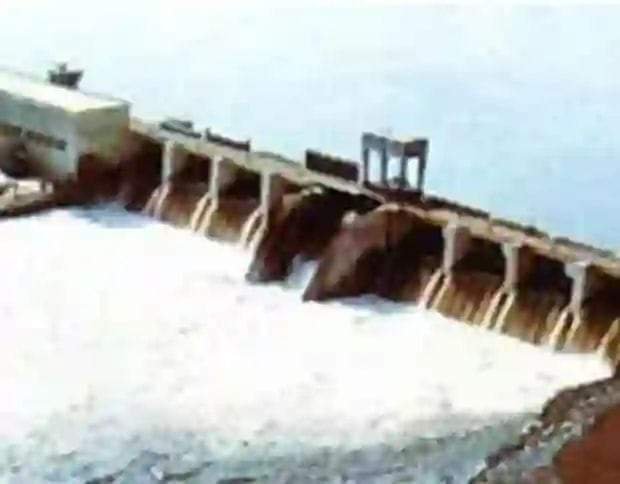
Anxiety Escalates Over Looming Flood From Cameroon’s Lagdo Dam
The Evangelist News edition, Tuesday, August 29, 2023 . By Adeze Ojukwu. Kindly like, share the link.
Nigerians are visibly petrified and rightly so too, over the looming flood, that will be triggered by the planned release of Cameroonian Lagdo Dam’s flood gates.
This imminent disaster is coming barely a year, after a similar action was taken by Cameroonian government, leading to massive destruction of lives and livelihoods, in over 30 sates.
About 33 communities in states such as Benue, Bayelsa, Rivers, Delta, Anambra were badly affected. Other settlements located around River Benue in some coastal areas, were also submerged for several months by the ferocious tide.
Therefore, the coming torrent is a nightmare that has escalating fear, worry and trepidation, across the country. Therefore, this foreboding scheme, requires significant planning and responses from the National Emergency Management Agency (NEMA), the Ministry of Humanitarian Affairs and allied teams.
The Cameroonian plan, has indisputably, thrown Nigerians into panic and trepidation. According to the viral alert, issued by the Cameroon’s Ministry of Foreign Affairs, the latest move was necessitated by the heavy rainfall around “the dam’s catchment area in Northern Cameroon.”
The letter, which was dated August 21, 2023, advised Nigerian government and relevant authorities to take preventive measures, in order to forestall untoward impact.
Following the swift confirmation of this information by NEMA, many concerned citizens expressed outrage, given the lack of preparedness and apathy, often exhibited by government and agencies to emergencies and accidents.
The Cameroonian government, however explained, in the statement, that “when the release of the water, became necessary, the dam’s authorities will be releasing only modulated variable small amount of water, in order to mitigate and avoid damages,” that may occur in River Benue Basin both in Cameroon and Nigeria.
Nevertheless, the ministry further advised the Nigerian authorities to “take proactive steps and actions that will mitigate the damage, as well as sensitize the populace, living around the areas for vigilance and necessary precautions. “
Sadly, many victims of the previous mishap, have not fully recovered from the catastrophe, hence the danger of a fresh deluge is really frightening.
Unfortunately, the relevant authorities have not demonstrated adequate commitment and capacity to effectively deal with, such a humongous disaster.
Additionally, paucity of funds is a major challenge to the operations and excellent execution of programmes by NEMA and other agencies.
As a result, many citizens go through harrowing experiences, due to poor response and lack of modern life-saving technologies, in times of emergencies.
Shortage of staff, lack of blood and inadequate provision of essential medical supplies also hamper prompt service delivery by these organizations. Hence, many people die or suffer from deadly injuries and preventable conditions.
Generally, flooding is a huge worldwide environmental problem. It threatens humans and the ecosystem. Apart from destroying houses, farms, properties and greenery, the menace undermines food security and marine life.
Several studies have also revealed that floods can cause epidemics, water-borne diseases and pollution of rivers as well as streams and springs. It can also trigger erosion, destroy roads and disrupt fishing activities, thus causing unemployment and economic losses.
Adaptation initiatives should integrate personal environmentally-friendly habits, to ensure that individuals will inculcate activities, such as gardening, tree planting and trees, around the house, as well as embrace proper hygiene, safe refuse disposal and a seamless transition from use of wood and charcoal for domestic fuel to the use of renewable energy sources.
Comprehensive plans on how to avoid bush burning, use of wood and charcoal as domestic fuel, as well as recycling options should also be included.
A holistic approach, that will help in tackling this terrible phenomenon is urgent, requiring concerted efforts.
Indeed, the complexities of flooding and climatic crises, place a huge burden on authorities and everyone, to play roles in remedial strategies and projects.
Experts believe that the surging incidences of flooding, heavy rainfall, ice melting and other ecological disasters are due to global warming.
Climate change is, clearly, the world’s biggest humanitarian crisis that must be confronted frontally. Therefore, it is imperative to improve public awareness about these issues, so that people and communities and all stakeholders, will develop serious commitment towards stopping the menace.
The imperative to save the earth is an inevitable task. There is only one habitable planet. Every effort must be made to protect it.
The impending climatic danger must be decisively prioritized, through a government-led synergistic action.
Quite importantly too, NEMA and allied agencies, must display their readiness to ameliorate the imminent hazard, that may emanate from the Cameroonian release of Lagdo Dam floodgate.
Citizens should not be subjected to endless cycles of suffering and loss, due to the ineptitude and negligence of government and its institutions.
Ojukwu, a journalist, author and Fellow of Hubert H. Humphrey Fellowship, a US sponsored Fulbright programme, is an advocate for justice, equity and good governance. Kindly send feedback to adeze.ojukwu@gmail.com










